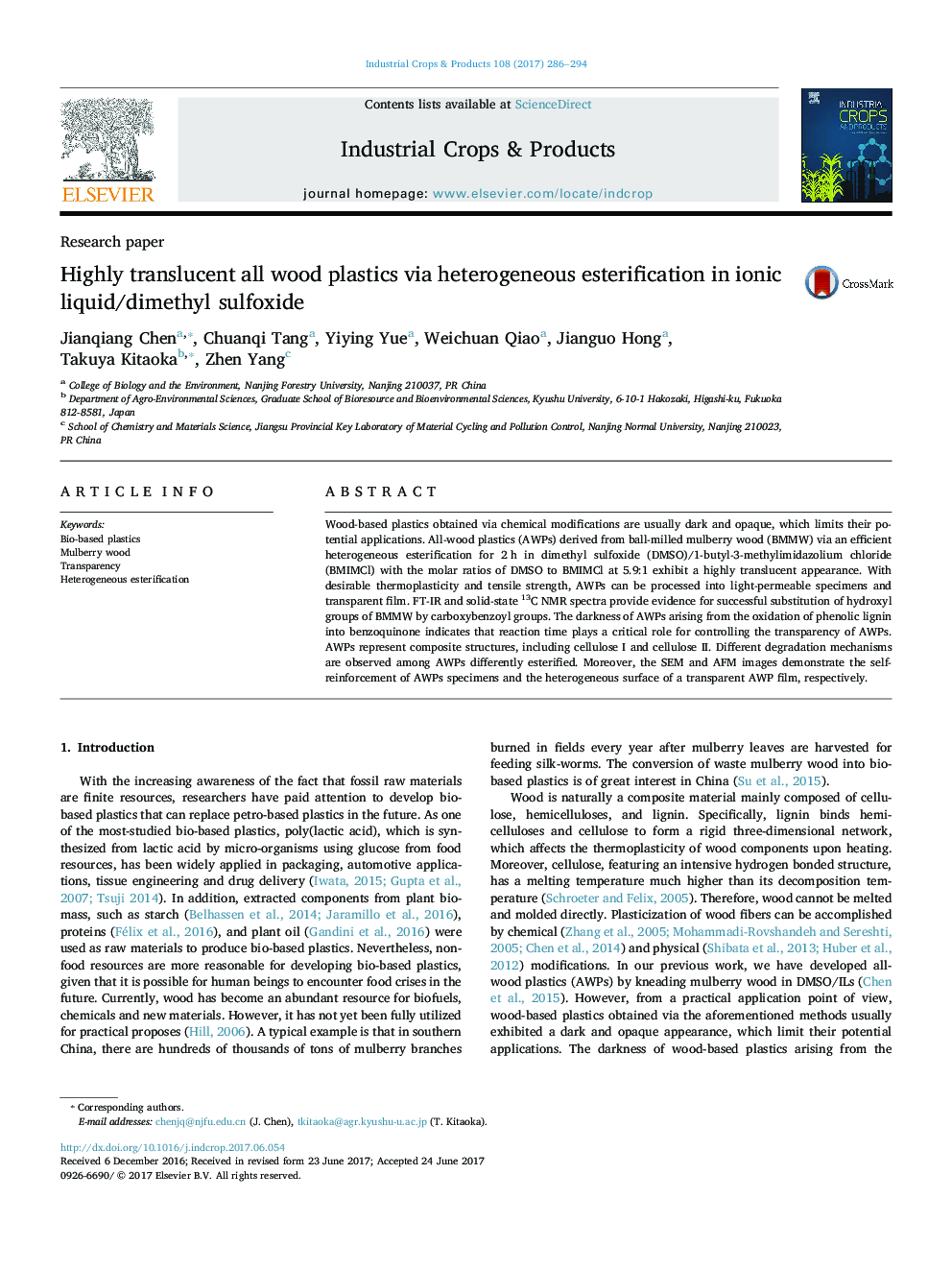| Article ID | Journal | Published Year | Pages | File Type |
|---|---|---|---|---|
| 5761886 | Industrial Crops and Products | 2017 | 9 Pages |
Abstract
Wood-based plastics obtained via chemical modifications are usually dark and opaque, which limits their potential applications. All-wood plastics (AWPs) derived from ball-milled mulberry wood (BMMW) via an efficient heterogeneous esterification for 2Â h in dimethyl sulfoxide (DMSO)/1-butyl-3-methylimidazolium chloride (BMIMCl) with the molar ratios of DMSO to BMIMCl at 5.9:1 exhibit a highly translucent appearance. With desirable thermoplasticity and tensile strength, AWPs can be processed into light-permeable specimens and transparent film. FT-IR and solid-state 13C NMR spectra provide evidence for successful substitution of hydroxyl groups of BMMW by carboxybenzoyl groups. The darkness of AWPs arising from the oxidation of phenolic lignin into benzoquinone indicates that reaction time plays a critical role for controlling the transparency of AWPs. AWPs represent composite structures, including cellulose I and cellulose II. Different degradation mechanisms are observed among AWPs differently esterified. Moreover, the SEM and AFM images demonstrate the self-reinforcement of AWPs specimens and the heterogeneous surface of a transparent AWP film, respectively.
Keywords
Related Topics
Life Sciences
Agricultural and Biological Sciences
Agronomy and Crop Science
Authors
Jianqiang Chen, Chuanqi Tang, Yiying Yue, Weichuan Qiao, Jianguo Hong, Takuya Kitaoka, Zhen Yang,
